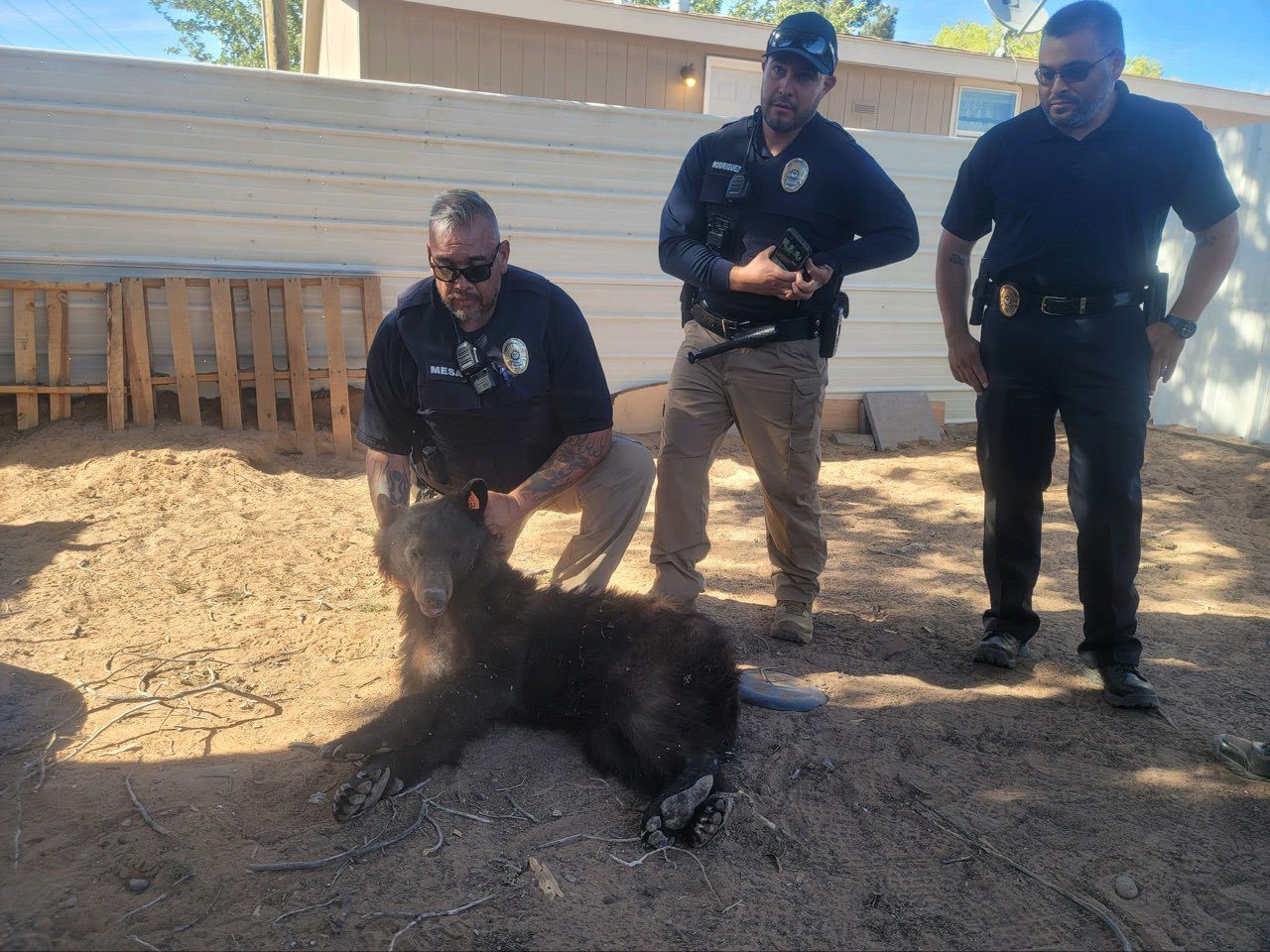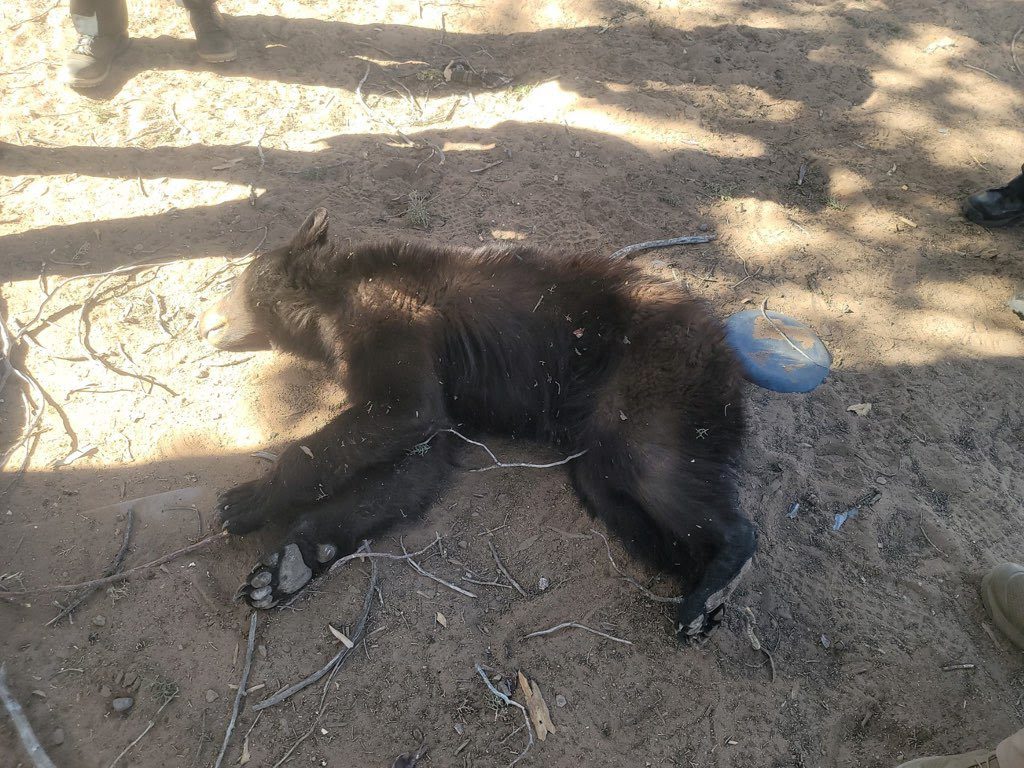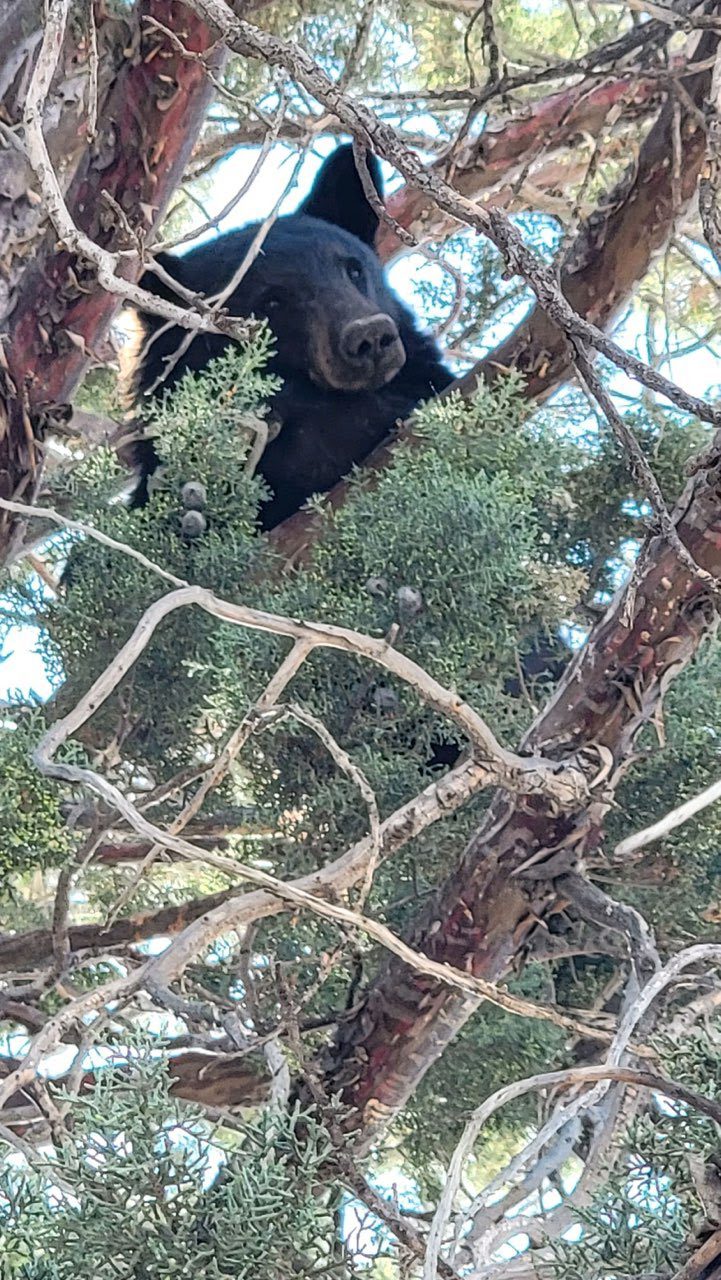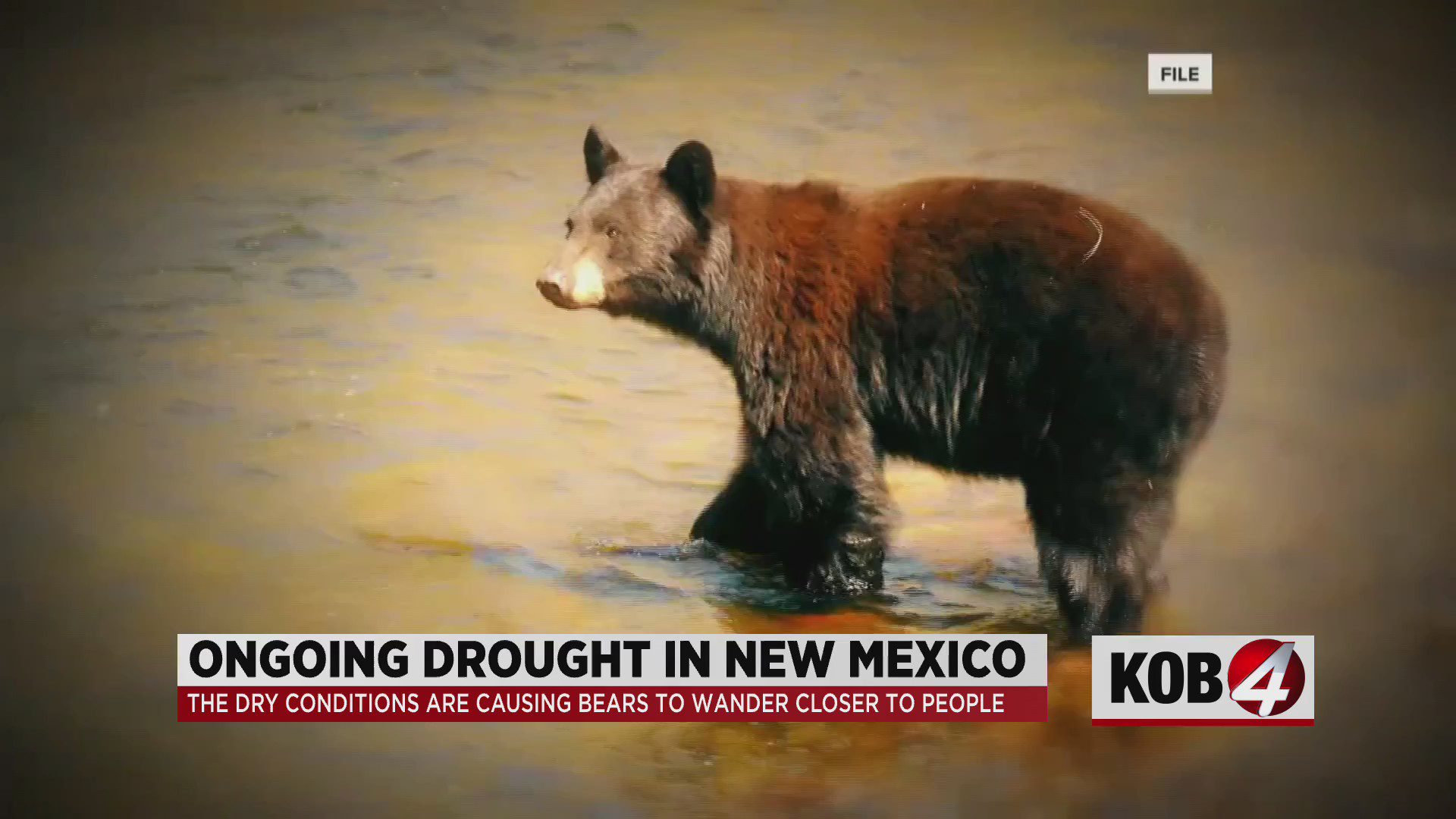New Mexico Game and Fish issues warning about bears amid drought conditions
[anvplayer video=”5115318″ station=”998122″]
ALBUQUERQUE, N.M. — The New Mexico Department of Game and Fish is warning New Mexicans to keep an eye out for bears amid extreme drought conditions.
“Bears have come out of hibernation,” said department spokesperson Tristanna Bickford. “They’re looking for food and water sources, and they’re traveling around until they find those.”
Wildlife experts say dry conditions are limiting almost all of the food resources bears rely on, including grasses and flowering plants. That’s pushing bears into populated areas, including ones that normally don’t see bear activity.
“While bears tend to stay in forested areas, they move around quite a bit,” Bickford said. “So far this year, we’ve had confirmed sightings in Clovis, there’s been one in Ute Lake, in Santa Rosa, and then, of course, one that was just last week found in Deming.”
Deming city representative says a bear cub was spotted at a city park early last week. The cub eventually showed up in someone’s yard and swiped at their dog. Officials say the panicked bear climbed up a tree. Crews had to use tranquilizer darts to bring the bear back to the ground and release it into the forest.



“We as humans can do quite a bit to help them keep moving through the area and keep up helping them kind of move into a new location where they can find natural food and water sources,” Bickford said.

The department offers the following suggestions to prevent bear activity:
- Keep trash properly contained until the day of pickup, especially if you reside in, or close to, wooded areas.
- Never leave fruit from trees and bushes to rot on the ground. It can be a powerful attractant to bears and other wildlife.
- Remove bird feeders. Bears see them as high-calorie treats, and often they will look for additional food sources nearby.
- Never put meat or sweet-smelling food scraps, such as melon, in your compost pile.
- Don’t leave pet food or food dishes outdoors at night.
- Clean and store outdoor grills after use. Bears can smell sweet barbecue sauce and grease for miles.
- Keep your camp clean, and store food and garbage properly at all times. Use bear-proof containers when available. If not, suspend food, toiletries, coolers and garbage from a tree at least 10 feet off the ground and 6 feet out from the tree trunk.
- Keep your tent and sleeping bag free of all food smells. Store the clothes you wore while cooking or eating with your food.
- Sleep a good distance from your cooking area or food storage site. A distance of at least 100 yards is recommended.
- Never intentionally feed bears to attract them for viewing.
Experts say bears are not typically dangerous unless they have to defend themselves or their cubs. If you see a bear in the wilderness, you’re advised to make yourself appear large, and give the bear plenty of space to escape and move away.
As for bear sightings near residential areas:
“It’s best to observe what the bear is doing,” Bickford said. “If the bear just being a bear and out wandering around looking for food and water, in that case, it’s best just to let it go on. Let it enjoy its natural habitat.”
Officials say anyone who sees a bear, or other wild animals, causing issues in populated areas should contact their local Game and Fish office.
Experts expect the upcoming monsoon will help keep wildlife in the forests, and not in neighborhoods.